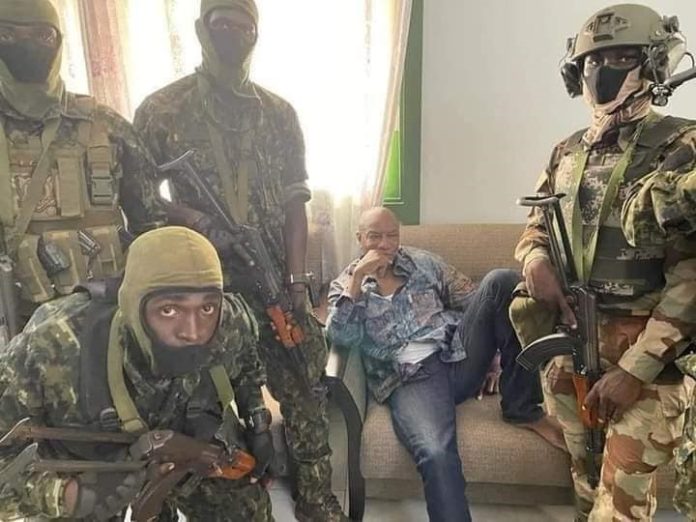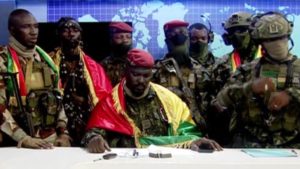
A group of soldiers who ousted Guinea’s President Alpha Condé from power on Sunday have ordered the country’s cabinet to attend a mandatory meeting on Monday.
Those who refuse to attend which was scheduled at 11:00 GMT (7 am EST) meeting will be considered rebels, a statement on state TV said.
President Condé remains in detention, but his fate is unclear.
The UN, African Union, and regional body Ecowas have condemned the coup and called for a return to civilian rule.
“I strongly condemn any takeover of the government by force of the gun and call for the immediate release of President Alpha Conde,” the UN secretary-general António Guterres tweeted.
After hours of gunfire on Sunday, the streets of the capital, Conakry are reported to be quiet but it remains unclear if the entire military backs the coup.
There is a sense of unease in Conakry a day after jubilant soldiers rode on the streets to mark the ousting of President Condé.
The often buzzing streets are strangely quiet despite the soldiers’ call that normal activity should continue.
Many shops remain closed while only a few taxi drivers have been operating.
There’s a heightened security presence in the district where government offices are based. Witnesses have told the BBC that members of special forces are in charge of security there.
Many are nervously waiting for the outcome of a meeting between the coup leaders and cabinet ministers which will chart the path forward for Guinea.
In a broadcast on state TV on Sunday night, a group of soldiers announced the dissolution of the constitution, the closure of the borders and a nationwide curfew.
They said regional governors had been replaced by military commanders, and the ousted 83-year-old president was safe but in detention.

The head of the country’s special forces, Col Mamady Doumbouya, said his soldiers had seized power because they want to end rampant corruption and mismanagement.
President Condé was re-elected for a controversial third term in office amid violent protests last year.
The veteran opposition leader was first elected in 2010 in the country’s first democratic transfer of power. Despite overseeing some economic progress, he has since been accused of presiding over numerous human rights abuses and harassment of his critics.
After the coup was announced, hundreds of residents poured into the streets of Conakry to celebrate the takeover, climbing onto military vehicles to greet soldiers draped with Guinean flags.






















Comments are closed.